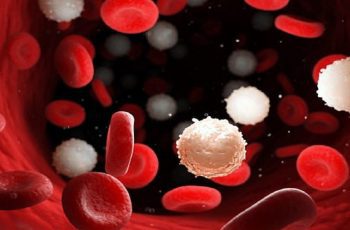Are you an Ectomorph, Mesomorph or Endomorph?
Please check in the mirror. Tell me the view. Are the legs longer than usual? What about big hips? Is there any room for thighs or stomachs? Are you able to sport and have muscle? Depending on your body type, it can be helpful to know the best diet for your lifestyle, some doctors say. It’s referred to as body types diets.
What is the Keto diet?
The keto diet is a low-carbohydrate, high-fat (LCHF) diet that has been gaining popularity in recent years. Unlike other low-carb diets, such as the Atkins diet, the keto diet does not restrict protein intake. Instead, it focuses on reducing carbohydrate intake to encourage the body to burn fat for energy. This process is known as ketosis.
The keto diet has been shown to be effective for weight loss, diabetes management, and epilepsy treatment. It is also being studied for its potential benefits in treating other conditions, such as Alzheimer’s disease and cancer. If you are considering starting the keto diet, it is important to consult with your healthcare provider first to ensure that it is the right diet for you.
Many people don’t realize the benefits of ketogenic diets. Can we get rid of ketogenic foods if we don’t have enough sugar? Then it becomes clear that our body functions as it functions to keep us from eating unhealthy food and avoids consuming too much alcohol. You will be able to appreciate keto diets. We are accustomed to eating carbohydrates. The body burns carbohydrates to satisfy energy requirements. However, our nutrition doesn’t consist solely of carbohydrates. We also eat a lot of fat, and the fat stays untouched. Ultimately this accumulation of fat results in overweight and belly fat.

What is the Keto Body?
The keto body is a state that your body enters when it burns fat for fuel rather than carbohydrates. This state is also known as nutritional ketosis or simply ketosis. When your body is in ketosis, it becomes very efficient at burning fat for fuel.
There are a few things that you need to do in order to get into ketosis, the most important of which is to consume a very low-carb diet. A low-carb diet is one that contains 50 grams or less of carbs per day. By drastically reducing your carb intake, your body will be forced to burn fat for fuel.
In addition to following a low-carb diet, you will also need to consume moderate amounts of protein and high amounts of healthy fats. This macronutrient ratio will help to ensure that your body has everything it needs to enter and maintain ketosis.
Once you’ve made some dietary changes and your body has entered ketosis, you can expect to see a number of different benefits. For starters, you will likely see a decrease in your appetite as well as a reduction in cravings. You may also experience more stable energy levels throughout the day, as well as improved mental clarity. In addition, some people find that they lose weight more easily when they are in ketosis.

How Does the Keto Diet Work?
In order to understand how the keto body works, it’s helpful to first understand a bit about how the body normally runs on fuel. The body’s preferred source of fuel is glucose, which comes from carbohydrates. When we eat carbs, they are broken down into glucose and enter the bloodstream. The pancreas then releases insulin, which helps cells absorb glucose so that it can be used for energy.
If we don’t eat enough carbs or if our cells become insulin resistant (a condition that can be caused by obesity, stress, and other factors), then our blood sugar levels can become too high. This causes the body to release a hormone called glucagon, which signals the liver to release stored glycogen and break it down into glucose to help regulate blood sugar levels.
However, if glycogen stores are low (as they would be if you’re following a ketogenic diet), then the liver will instead break down stored fat into ketone bodies, which can be used for energy. These ketone bodies are why the keto diet is so effective for weight loss; when your body is in a state of ketosis, it will preferentially burn stored fat for energy rather than carbohydrates.
In addition to weight loss, there are several other benefits associated with running on ketones rather than glucose. Ketones are a more efficient source of energy than glucose; they produce less reactive oxygen species (which can damage cells) and generate less cellular waste. Ketones also help to decrease inflammation, which has been linked to diseases like Alzheimer’s and cancer. Finally, many people report improved mental clarity when in a state of ketosis; this may be due to the fact that ketones can cross the blood-brain barrier and provide an alternative energy source for neurons.

What Are the Benefits of the Keto Diet?
1. Weight Loss
One of the most common reasons people try the keto diet is for weight loss. And it’s no wonder—keto is an incredibly effective way to lose weight. In fact, studies have shown that people on a keto diet lose more weight and body fat than those on other popular diets. Plus, they also report feeling less hungry and having more energy.
2. Increased Energy Levels
When you switch to a keto diet, your body enters a state called “ketosis.” In ketosis, your body starts burning fat for energy instead of carbs. This can lead to increased energy levels, as well as decreased fatigue and brain fog.
3. Improved Mental Clarity
Another common benefit of the keto diet is improved mental clarity. When your body is in ketosis, it provides a steady supply of energy to your brain, which can lead to better focus and concentration. Keto has also been shown to help improve memory and cognitive function.
4. Reduced Inflammation
Inflammation is a major cause of many chronic diseases, such as heart disease, arthritis, and diabetes. The good news is that the keto diet can help reduce inflammation throughout the body. Studies have shown that people who eat a ketogenic diet have lower levels of inflammatory markers in their blood than those who don’t.
5. Lower Risk of Heart Disease
Speaking of heart disease, the keto diet can also help reduce your risk of developing this condition. One study found that people who followed a low-carb, high-fat diet had a significantly lower risk of dying from heart disease than those who followed a low-fat diet. Keto can also help improve cholesterol levels and blood pressure, both of which are risk factors for heart disease.
6. May Help Prevent Cancer cancer cells rely on sugar (glucose) for energy.
When you limit sugar with a ketogenic diet, you may also be able to starve cancer cells and prevent them from spreading. One study found that the keto diet was able to stop the growth of cancer cells in mice. However, more research is needed before we can say for sure whether or not the keto diet can help prevent or treat cancer in humans.
7 . Improved Gut Health The gut microbiome is made up of trillions of bacteria that play an important role in our health.
Studies have shown that the types of bacteria in our gut can influence everything from weight gain to inflammation. The good news is that following a ketogenic diet can help improve gut health by reducing inflammation and increasing “good” bacteria.

Things to Consider Before Starting the Keto Diet
Here are a few things to consider before starting the keto diet:
Talk to your doctor: As with any major dietary change, it’s important to talk to your doctor before starting the keto diet. This is especially important if you have any underlying health conditions or take medication on a regular basis.
Get adequate sleep: Getting adequate sleep is important for everyone, but it’s especially important if you’re following a ketogenic diet. This is because sleep deprivation can increase stress levels and lead to carb cravings.
Drink plenty of water: Staying hydrated is key when following any type of diet, but it’s especially important on the keto diet. This is because water helps your body burn fat and also helps to prevent constipation.
Avoid processed foods: When following the keto diet, it’s important to avoid processed foods as much as possible. Processed foods are often high in unhealthy ingredients like added sugar, unhealthy fats, and sodium.

Is Keto Good for Endomorphs?
Yes, the keto diet can be effective for endomorphs who are looking to lose weight. One study showed that people who followed a ketogenic diet lost more weight and body fat than those who followed a low-fat diet. Furthermore, they also experienced greater reductions in waist circumference and triglyceride levels.
However, it’s important to note that not all endomorphs will experience the same results on the keto diet. Some may find it easier to lose weight on a different type of diet, such as the Mediterranean diet or the Atkins diet. Ultimately, it’s important to find a diet that works for you and stick with it in order to see results.

The Keto Diet for Endomorphs
The keto diet is a low-carbohydrate, high-fat diet that has been shown to promote weight loss. For people who are overweight or obese, the keto diet can be an effective way to lose weight. However, the keto diet is not suitable for everyone. People with different body types will experience different results on the keto diet. Endomorphs, in particular, will need to tailor the diet to their specific body type in order to make it work.
Endomorphs tend to have a higher percentage of body fat and a slower metabolism than other body types. This combination can make it harder for endomorphs to lose weight. However, the keto diet can still be an effective weight-loss tool for endomorphs if it’s done correctly. When following a keto diet, endomorphs should focus on eating healthy fats, moderate amounts of protein, and very few carbohydrates. This macronutrient ratio will help to encourage fat burning and weight loss. In addition, endomorphs should make sure to get plenty of exercise and stay hydrated throughout the day.
If you’re an endomorph who is interested in trying the keto diet, speak with your doctor or a registered dietitian first. They can help you create a tailored meal plan that will ensure you’re getting all the nutrients you need while following the ketogenic lifestyle.

Keto Diet Good for Pear-Shaped Bodies
The main advantage of the keto diet for pear-shaped bodies is that it can help reduce belly fat. Belly fat is more difficult to lose than other types of fat, so this is a significant benefit. In addition, the keto diet can also help to increase muscle mass, which can give your body a more toned and sculpted appearance. And finally, the keto diet can also help improve your energy levels and mental clarity.
However, there are also some disadvantages of the keto diet to consider. First of all, it can be difficult to stick to a long-term. This is because the diet requires you to drastically change your eating habits and food choices. In addition, the keto diet can also cause some side effects like headaches, fatigue, and irritability. And finally, the keto diet may not be suitable for everyone due to its high-fat content. So, if you’re considering trying the keto diet, be sure to speak with your doctor first to see if it’s right for you.

Final Thoughts
The keto diet can be an effective weight-loss tool for endomorphs, but it’s important to tailor the diet to your specific body type. When following a keto diet, endomorphs should focus on eating healthy fats, moderate amounts of protein, and very few carbohydrates. This macronutrient ratio will help to encourage fat burning and weight loss. In addition, endomorphs should make sure to get plenty of exercises and stay hydrated throughout the day. If you’re considering trying the keto diet, speak with your doctor first to see if it’s right for you.
Frequently Asked Questions (FAQs)
How does fat leave the body on keto?
The keto diet is different from some other popular low-carb diets, which tend to be high in animal protein. Instead of using sugar as the main fuel, the keto diet focuses on getting the body to burn stored body fat. When the liver breaks down body fat instead of glucose, a source of energy called ketones is made.
What does your body feel like on keto?
People in ketosis may have headaches, stomachaches, and changes in how much they sleep and how much energy they have, among other side effects and symptoms. People can check the level of ketones in their blood, breath, or urine for a more accurate way to tell if they are in ketosis.
What are the first signs of ketosis?
Ketosis is a natural metabolic process in which fat is broken down into ketone bodies, which are then used to make energy. If you are in ketosis, you might feel tired, have bad breath, have a dry mouth, lose weight, have flu-like symptoms, and feel less hungry and thirsty.
How quickly do you lose weight on keto?
Anecdotally, people claim to have lost anything between 1 pound (0.5 kg) to 10 pounds or more during the first week (5 kg). You are more likely to lose water weight after starting a ketogenic diet if you are larger.





